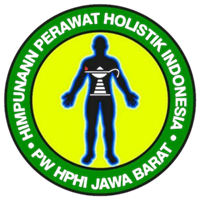Association between Parenting Patterns and Exclusive Breastfeeding with Wasting Incidence in Toddlers
DOI:
https://doi.org/10.56359/gj.v6i1.478Keywords:
Exclusive Breastfeeding, Toddlers, Parenting Patterns, WastingAbstract
Introduction: Wasting is a form of acute malnutrition that significantly affects the physical growth, brain development, and immune function of toddlers. Various factors, including parenting styles and breastfeeding practices, may influence the occurrence of wasting.
Objective: This study aims to analyze the relationship between parenting styles and exclusive breastfeeding with the incidence of wasting among toddlers in the Sidomulyo Health Center area, Samarinda City.
Methods: A quantitative, correlational study with a cross-sectional design was conducted involving 168 toddlers aged 2–5 years, selected through stratified cluster sampling. Data were collected using structured questionnaires and analyzed using the Chi-Square test and Fisher’s Exact Test to assess the associations between variables.
Results: The findings revealed that permissive parenting was associated with the highest proportion of wasting cases (46.2%), whereas democratic parenting showed the lowest proportion (9.9%). A significant relationship was found between parenting style and the incidence of wasting (p = 0.000). Furthermore, toddlers who were not exclusively breastfed had a significantly higher risk of wasting compared to those who received exclusive breastfeeding (p = 0.000).
Conclusion: Maternal characteristics, parenting styles, and breastfeeding practices play a significant role in determining the nutritional status of toddlers. Democratic parenting and exclusive breastfeeding were found to contribute positively to the prevention of wasting.
Downloads
References
Afandi, (2020). Research Design: Definition, Function, Classification, and Form. Jakarta, Garmedia.
Babapour, A. R., Gahassab-Mozaffari, N., & Fathnezhad-Kazemi, A. (2022). Nurses’ Job Stress and Its Impact on Quality of Life and Caring Behaviors: A Cross-Sectional Study. BMC nursing, 21(1), 75-86. https://doi.org/10.1186/s12912-022-00852-y
Betan, Y., Jenau, B., Djogo, H. M. A., & Rumbo, H. (2024). Effect of Breathing Relaxation on Stress Related to COVID-19 Pandemic Among Older Adults In Nursing Homes: A Pre-Experimental Study. Jurnal Keperawatan Padjadjaran, 12(3), 327-334. https://doi.org/10.24198/jkp.v12i3.2261
Bornstein, M. H., Cote, L. R., Haynes, O. M., Hahn, C. S., & Park, Y. (2022). Parenting Knowledge: Experiential and Sociodemographic Factors In European American Mothers of Young Children. In Parenting: Selected Writings of Marc H. Bornstein (pp. 195-231). Routledge.
Habtamu, E., Chilo, D., & Desalegn, D. (2022). Determinants of Wasting Among Children Aged 6–59 Months in Wonago Woreda, South Ethiopia. A Facility-Based Unmatched Case-Control Study. PLoS One, 17(6), e0269380. https://doi.org/10.1371/journal.pone.0269380
Hadrayani, E., & Purwanti, S. (2024). Irregular Dietary Habits as a Predictor of Stunting Occurrence Among Children Under 5 Years of Age: A Literature Review. Frontiers of Nursing, 11(1), 176-187. https://doi.org/10.2478/fon-2024-0002
Hasnita, E., Noflidaputri, R., Sari, NW, & Yuniliza, Y. (2023). Factors Affecting the Incidence of Wasting in Toddlers Aged 36-59 Months in the Rao Health Center Working Area, Pasaman Regency. Jik Journal of Health Sciences, 7(1), 130. https://doi.org/10.33757/jik.v7i1.740
Hawazen, H., & Anwar, R. (2024). Hubungan Pengetahuan Ibu, Pola Asuh dan Sanitasi Lingkungan Dengan Kejadian Wasting Pada Balita. Jurnal Riset Pangan dan Gizi, 6(1), 48-56. https://doi.org/10.31964/jr-panzi.v6i1.172
Intiyati, A., Putri, R. D. Y., Edi, I. S., Taufiqurrahman, T., Soesanti, I., Pengge, N. M., & Shofiya, D. (2024). Correlation between Exclusive Breastfeeding, Complementary Feeding, Infectious Disease with Wasting among Toddlers: a Cross-Sectional Study: Hubungan ASI Eksklusif, Makanan Pendamping ASI, Penyakit Infeksi dengan Kejadian Wasting pada Balita: Cross-Sectional Study. Amerta Nutrition, 8(2SP), 1-8.
Latifah, K. A., & Puspitawati, H. (2025). Determinants of The Quality of Care For Stunted Children: The Role Of Gender Roles, Posyandu Check-Ups, and Household Characteristics. Journal of Child, Family, and Consumer Studies, 4(1), 24-39.
Ministry of Health of the Republic of Indonesia. (2021). Child Growth Training Module. Directorate General of Nutrition and Maternal and Child Health, Jakarta.
Ministry of Health of the Republic of Indonesia. 2020. Ministry of Health Performance Report 2020. Jakarta
Ministry of Health of the Republic of Indonesia. 2020. Regulation of the Minister of Health of the Republic of Indonesia on the recommended nutritional adequacy for the Indonesian people. Jakarta: Ministry of Health of the Republic of Indonesia
Nadeak, D. F. (2025). Hubungan Pengetahuan Ibu, Pola Asuh dan Sanitasi Lingkungan Terhadap Kejadian Wasting Pada Bayi di Puskesmas Tamiang Hulu Kec. Tamiang Hulu Tahun 2024. JIDAN: Jurnal Ilmiah Kebidanan, 5(1), 141-150. https://doi.org/10.51771/jidan.v5i1.1321
Public Relations of Research and Development of Health. (2021). Pocket Book of Results of the Indonesian Nutritional Status Study (SSGI) 2021.
Purba, A., & Siregar, R. N. (2024). Faktor-Faktor yang Berhubungan Dengan Status Gizi Baduta (6-24 Bulan) di Puskesmas Buhit Samosir. Jurnal Kesehatan Ilmiah Indonesia (Indonesian Health Scientific Journal), 9(1), 266-273.
Sulistiani, A. D., Sefrina, L. R., & Elvandari, M. (2024). Tingkat Pendidikan Orang Tua, Pola Pengasuhan dan Sanitasi Lingkungan Terhadap Kejadian Wasting Pada Balita: Education Level, Parenting Patterns, and Environmental Sanitation on the Occurrence of Wasting in Toddlers. Media Gizi Pangan, 31(2), 147-154. https://doi.org/10.32382/mgp.v31i2.681
UNICEF. (2020) Improving Child Nutrition The Achievable Imperative For Global Progress
Wahyuni, R. K., Syuryadi, N., & Ernalia, Y. (2023, December). Hubungan Pemberian Asi Ekslusif Terhadap Status Gizi Bayi di Desa Tanjung Mulya Mukomuko. In Prosiding Seminar Nasional Ketahanan Pangan (Vol. 1, No. 1, pp. 85-92).
Downloads
Published
How to Cite
Issue
Section
License
Copyright (c) 2025 Selma Aqila Malwani, Fatma Zulaikha, Ni Wayan Wiwin Asthiningsih

This work is licensed under a Creative Commons Attribution 4.0 International License.















